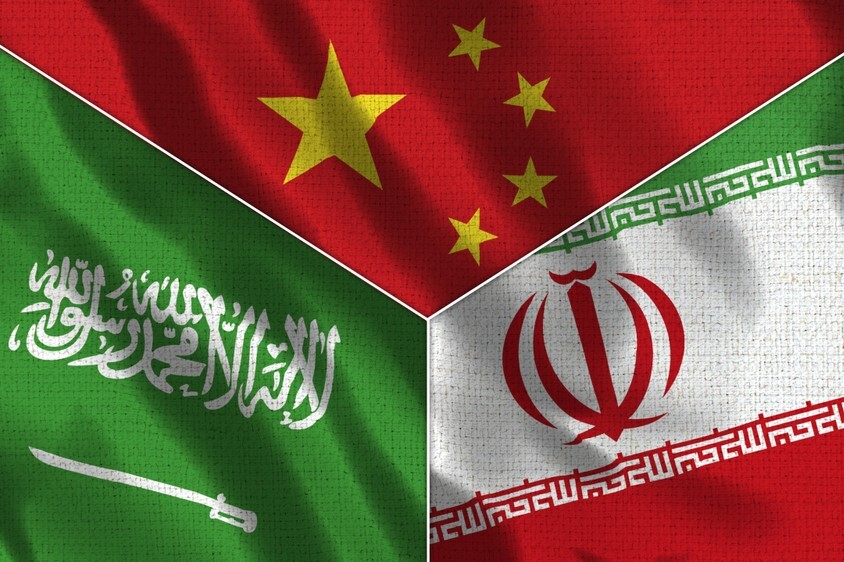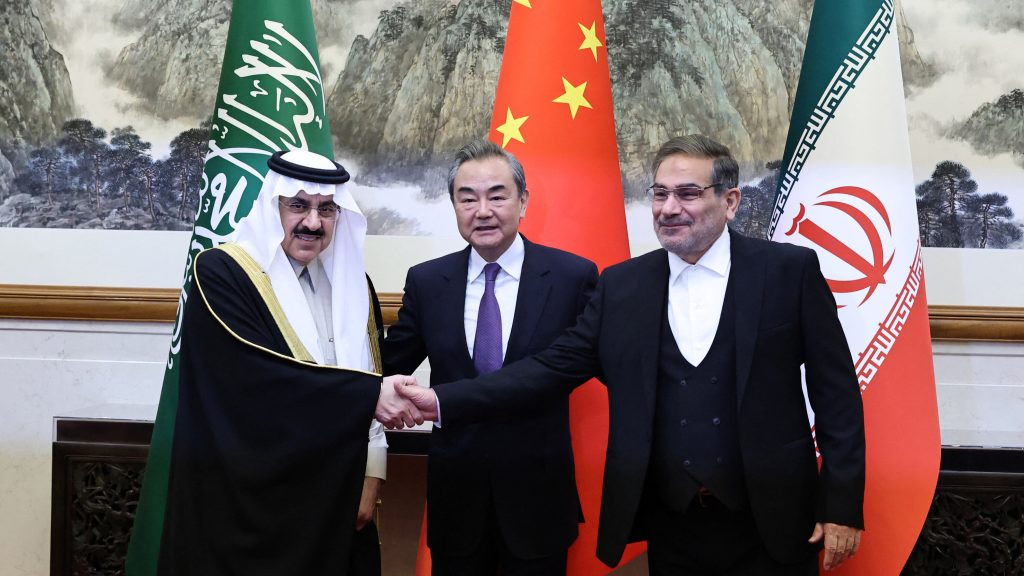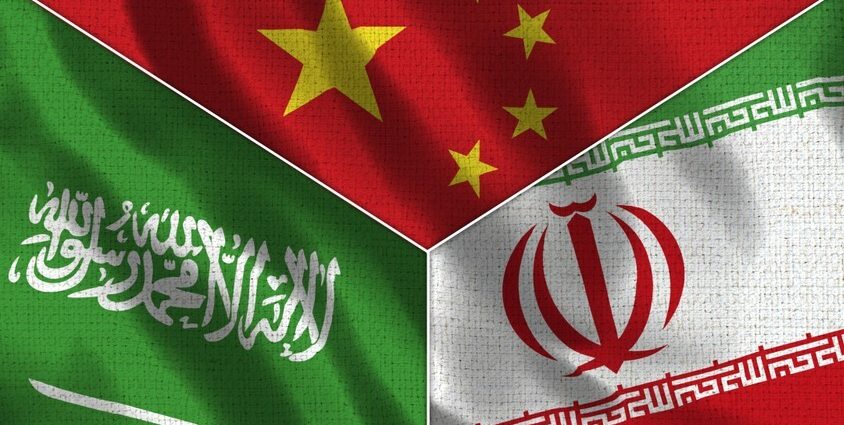
Iran-Saudi Rapprochement: Changing Power Dynamics in the Middle East.
The triangular dynamics between China, Saudi Arabia, and Iran in the West Indian Ocean region
U.S. will not withdraw from the Middle East in the near future as its interests are deeply rooted in the region,
ISLAMABAD ( Web News )
The triangular dynamics between China, Saudi Arabia, and Iran in the West Indian Ocean region, particularly in the Gulf, pose a challenge to the interests of India and the United States. Besides presenting economic opportunities for Pakistan, this situation also opens doors for ending proxy wars and sectarian conflicts in the region. Regional security experts and scholars made these observations during a session organized by the Institute of Policy Studies (IPS) titled “Iran-Saudi Rapprochement: Changing Power Dynamics in the Middle East.”
Key participants in the discussion included former ambassadors Javed Hafeez and Syed Abrar Hussain, Vice Chairman of IPS, Professor Dr. Nazir Hussain, former Dean of Social Sciences at Quaid-e-Azam University Islamabad, Dr. Amina Mahmood, Dean of Social Sciences at the International Islamic University Islamabad, IPS Director of Research and Academic Outreach, Professor Dr. Fakhr-ul-Islam, and IPS Research Fellows Dr. Taghral Yamin, Brigadier (R) Syed Nazir, and Dr. Azhar Ahmed.
The experts agreed that the reconciliation between Saudi Arabia and Iran in China’s triangular dynamics has rekindled hopes for regional stability, positive prospects, and socio-economic development in the Middle East and surrounding regions. Javed Hafeez, the former ambassador, highlighted the importance of reviving diplomatic relations between Iran and Saudi Arabia, which, contrary to the U.S. military perspective, has changed the geopolitical landscape in favor of progress and peace. He emphasized that seeking diplomatic solutions to conflicts, prioritizing geo-economics, and promoting a conducive environment for resolving other regional issues, this reconciliation can have far-reaching effects on the region’s geopolitical, social prosperity, economic growth, and stability.

Regarding the dynamics of emerging powers in the region, they noted that despite China’s increasing influence and presence, the U.S. will not withdraw from the Middle East in the near future as its interests are deeply rooted in the region, connecting it to both the United States and the West.
The news highlights that the rapprochement between China, Saudi Arabia, and Iran in the West Asian region, especially in the Gulf, has the potential to bring a significant shift in the dynamics. Apart from economic development, this rapprochement also provides an opportunity to address proxy wars and sectarian conflicts. Experts and scholars discussed these developments in a session titled ‘Iran-Saudi Rapprochement: Changing Dynamics in the Middle East’ organized by the Institute of Policy Studies (IPS) in Islamabad.
The participants, including former ambassadors Javed Hafeez and Syed Abrar Hussain, Vice Chairman of IPS, Professor Dr. Nazir Hussain, former Dean of Social Sciences at Quaid-e-Azam University, Dr. Amina Mahmood, Dean of Social Sciences at International Islamic University Islamabad, IPS Director Research and Academic Affairs Professor Dr. Fakhr-ul-Islam, and Institute’s Research Fellows Dr. Taghral Yamin and Brigadier (R) Syed Nazir, discussed the positive impact of the Saudi-Iranian rapprochement on the geopolitical and socio-economic environment in the Middle East.
They agreed that despite the United States’ military perspective, the rapprochement has the potential to reshape the political landscape in the region, leading to conflict resolution, geo-economics prioritization, and fostering a conducive environment for sustainable development and stability. The changing dynamics in the region might not immediately displace the US presence, given its crucial interests in the area, but it can contribute to the emergence of new power dynamics in the region, benefiting Africa and the Middle East through enhanced trade and commerce.
The experts also acknowledged that while the rapprochement has reduced hostilities between Iran and Saudi Arabia, both countries are still vying for regional dominance and control. Therefore, it is essential to address remaining issues and strive for conflict resolution and increased cooperation.
In this context, Dr. Nazir Hussain proposed that in case Saudi Arabia’s economy and restrictions are lifted, Iran’s commercial potential could be harnessed. He suggested the formation of a consensus-based consortium among Saudi Arabia, Iran, Pakistan, and China for mutual trade and investment.
Dr. Amina Mahmood from the Islamic University expressed that this rapprochement provides Pakistan with an opportunity to not only pursue economic development but also to resolve proxy wars and sectarian conflicts. To benefit from this opportunity, Pakistan needs to maintain coherence and a dynamic approach in its policies.
Dr. Azhar Ahmad emphasized that as states are realigning their preferences, Pakistan should also learn how to navigate the changing geopolitical environment while staying committed to long-term national interests. He highlighted the need for Pakistan to strike a balance between Saudi Arabia and Iran and show more enthusiasm in its relations with both countries.
Dr. Taghral Yamin pointed out that due to America’s evident presence and public suspicions between Iran and Saudi Arabia, it might take time for other issues to be resolved and genuine reconciliation to begin.
Overall, the consensus among the experts was that Gulf and Middle Eastern states, in the face of changing regional circumstances, should maintain good relations with both China and the United States to benefit their own interests. This progress will enhance China’s role in the region and boost its trade and commerce with Africa and the Middle East. As the situation changes in other states, Pakistan, as well, should create new preferences while aligning other countries’ rising interests with its own national interests.

